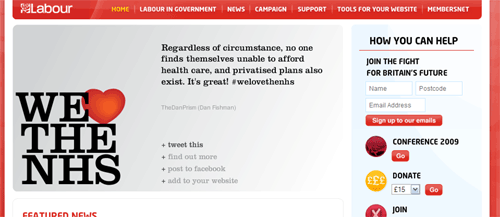
I can’t underline enough how enjoyable, educational and thought-provoking this weekend’s second WordCampUK was: over 100 people, including a large local contingent, gathering in Cardiff Bay for two packed days of WordPress talk, a bit of food, quite a lot to drink, and nowhere near enough sleep.
Last year in Birmingham, it felt amateur – and I mean that in both the positive and negative senses of the word. It was a bit like a first date. Fun and exciting, with some unforgettable moments, and clearly the start of something special – but acutely embarrassing in places. (Oh, and an incredibly vicious Twitter backchannel.)
All so different this year. Bigger and better presenters with bigger and better stories to tell, and a definite sense that we’re shifting up the gears, really quite quickly. And the Twitter chat was much nicer too.
The highlight, inevitably, was the appearance of Mr WordPress himself, Matt Mullenweg. Charming, charismatic, cool and – I’m not ashamed to admit this – cute. Rather than give his almost traditional ‘State of the Word’ lecture, he took questions from the floor… and it was inspirational stuff.
I’ll take away a few specific things from what he said. His description of WordPress as a platform comparable to Windows or MacOS, given the number of plugin ‘programs’ written for it. His perfect ease at calling WordPress a CMS. His unexpectedly complimentary tone regarding Drupal. But most of all, the purity of his philosophy, and the strength of his commitment to it. I expected to detect a sharp business edge to his remarks (cf Zuckerberg); in the end, I was relieved not to.
We had many references, particularly through day one, to government use – and indeed, Matt confirmed that the UK and Brazil are the two countries where government buy-in is highest. So no pressure on me, then, for my Sunday lunchtime slot on the government picture – lessons learned from the number10.gov.uk launch, and the many ripples spreading out from that (which I’ll write up separately). I was my usual bouncy, passionate self, and it seemed to go down well: somebody described me as the WordPress community’s Jamie Oliver, which I’ll take as a compliment. Pukka!
Whereas last year saw a lot of people presenting their hobby sites, this year seemed to be entirely professional examples. But it didn’t stop speaker after speaker handing over their tips and advice – to put it another way, their trade secrets. So whilst WordPress is unquestionably becoming a serious product, and a serious business, it remains a supportive community. It’s Us versus Them – with Them being different things or people at different times. (I should have made a list.)
I’ll admit, I went to WordCamp looking for an answer to a difficult question. I’m making my living from WordPress, and I can see a proper industry starting to take shape around it: so what should I be doing about it?
One answer was Matt Mullenweg’s hippy philosophy, without which we wouldn’t be here in the first place, of course. Betfair’s Nick Garner, meanwhile, framed it all as a commercial opportunity, with the proposal for a ‘WordCon’ spinoff event pitching WordPress (and us as WordPress experts) to corporate clients. It led to some, ahem, heated debate.
Maybe Matt needs to grow up. Maybe Nick totally misses the point. Maybe they’re both right in different ways. My question remains unanswered, but I’m all the more convinced that it’s the right question to be asking, and the right moment to be asking it.
Pic by Mark, @cMadMan: that’s me at the front, waving a can of Red Bull Cola at the good people of WordCamp.






